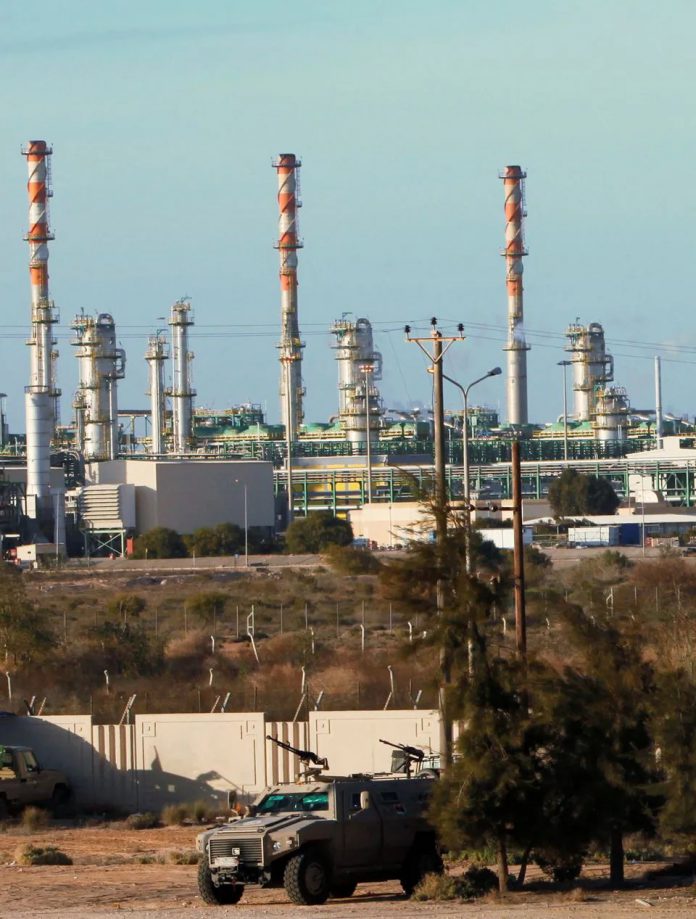A group called the Corruption Eradication Movement, have threatened to shut down two oil and gas facilities near the Libyan capital Tripoli, after issuing a 72-hour ultimatum that ends on Friday.
The group in a video statement online said that it would “stop the pumping of gas from the Mellitah complex”, a joint venture between Libya’s National Oil Corporation (NOC) and Italy’s Eni (ENI.MI).
Any halt would disrupt the supply of gas through the Greenstream pipeline between Libya and Italy.
Eni declined to comment and NOC was not immediately available for comment on the latest threat. The protesters demanded the removal of NOC Chairman Farhat Bengdara over what they called “violations amounting to the level of crime”.
They also demanded that Bengdara be prevented from concluding any oil and gas agreements. Other demands included job opportunities for young people in areas near the oil facilities and preventing environmental pollution.
“If the authorities do not respond to our demands, the movement may develop into civil disobedience,” the group’s spokesman Salem Mohamed told Reuters by phone.
Libya’s oil sector, the country’s major source of income, has been a target for local and broader political protests since the toppling of Muammar Gaddafi in a NATO-backed uprising in 2011.
Local groups and larger national ones alike have sought a bigger share of state revenue as well as political changes. It was unclear whether the latest protesters could close facilities.
The movement has said it would close NOC’s Zawiya refinery, west of Tripoli, which can process 120,000 barrels per day, making it the country’s biggest functioning refinery.
The refinery is connected to the 3000,000 bpd Sharara field. NOC declared force majeure on Sunday in Sharara production.
The field was closed by protesters from the Fezzan region in the south of the country last week to press demands for “better services”.
NOC said that the closure of Sharara suspended the crude oil supplies to the Zawiya terminal.
It also said on Tuesday that Bengdara met with Fezzan region leaders to discuss the repercussions of the force majeure










